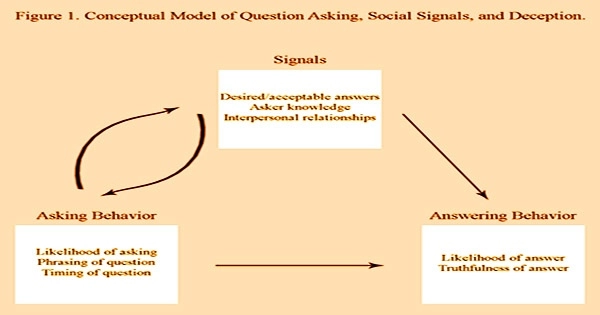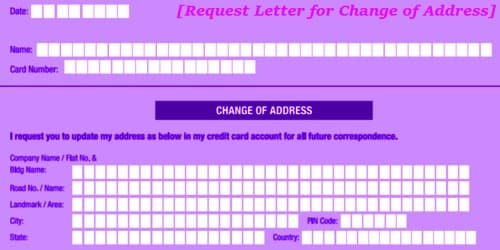Why do we ask questions? Generally speaking, to gain accurate and beneficial information, to develop knowledge, and to improve understanding. Respondents, whether they are a job candidate, friend, classmate, romantic partner, or a parent, might not give an honest response. Alternately, they could duck the inquiry or decide not to respond at all.
As mentioned below, Figure 1 provides a graphic summary. One must be clever in order to get honest responses. This entails gathering as much information as you can prior to and during the conversation before asking the appropriate question at the appropriate moment and in the appropriate manner.

The respondent may lie and give answers the asker expects or desires
The first thing is to understand that a question is not merely a question but also a signal:
When or how a question is phrased could accidentally indicate what the asker wants to say or what they anticipate hearing.
Therefore, it is better to ask, “How did you feel?” than “How angry were you?” Or, “What kind of pain, if any, are you feeling at the moment?” than “You are not in any pain now, right?”
It’s also crucial to keep in mind that asking numerous questions in a short period of time may indicate that you would prefer replies that were shorter and less in-depth.
Asking yes-or-no questions, especially about uncommon issues or unwanted behaviors, may not yield accurate results. It is crucial to normalize the problem you are posing in such circumstances.
To illustrate, instead of asking your adolescent, “Have you ever used an illegal drug?,” ask a series of questions about using different drugs, including both legal and illegal ones. The latter strategy implies that the use of illegal drugs is widespread, which makes it simpler for your youngster to tell the truth.
What the questioner knows
It’s crucial to plan ahead because the improper questions could reveal a person’s ignorance, stupidity, or incompetence. Before speaking to the target, it is frequently necessary to gather information from a variety of sources (such as books, the Internet, and friends).
Inquiries that (correctly) assume a problem and inquire about the problem’s importance imply more competence than questions that make no such assumptions. To illustrate, asking the hiring manager, “How often do I need to deal with angry customers who are tired of waiting?” shows more knowledge than “Will I need to deal with angry customers?”
The respondent will feel more confident in your knowledge if you ask questions that appropriately assume an issue, which will encourage them to be more honest.
Concerns regarding damaging the relationship
When we ask questions, we don’t always just want the answers; sometimes we also want to leave a favorable impression, start a relationship, or strengthen an existing one. However, pursuing the informative and interpersonal objectives at the same time might be challenging.
Unexpected and sensitive inquiries may occasionally be necessary, even if doing so makes the respondent (or both parties) uncomfortable. This is due to the fact that liars frequently plan responses to such questions in advance. So it could be important to ask unexpected inquiries. However, doing so could erode the relationship by implying mistrust on the part of the asker.
Furthermore, if earlier contacts between the parties have only involved small talk, the queries could come out as intrusive. Therefore, when the relationship is highly cherished, they should be avoided.
On the other hand, the potential harm and interpersonal costs of unexpected queries are frequently overemphasized. This disregards not just the significance of informative objectives but also how expressing attention and concern through inquiries could potentially improve the connection.
For instance, asking employees for work updates on a regular basis may not be a sign of disapproval or mistrust, but rather of interest in how well they are doing in terms of achieving their objectives.
Concerns regarding reciprocation
It is expected to get comparable questions from the respondent because asking questions indicates interest in a subject. A coworker can inquire about your pay or love life after you inquire about theirs.
Avoiding asking questions we cannot or do not want to answer ourselves is the apparent method to avoid this. However, this permits the continuation of misleading impressions, misunderstandings, and lies of omission, which is deceit by the omission of material facts as opposed to lying of commission, which entail the creation of incorrect information.
Takeaway
Here are some suggestions on how to get honest answers.
One is to stay impartial or normalize the behavior when investigating uncommon or unwanted activities. Ask a delicate inquiry, for instance, while you are asking expected or common questions. Alternatively, pose an indirect question, inquiring about similar others (e.g., “How much porn do you think single guys your age watch?”).
Two, learn as much as you can about the subject, and then ask questions that demonstrate your expertise and competency in order to lessen the likelihood of lying of omission.
Three, before asking questions, reflect on your informational or relational goals. The future of the connection can be impacted by the questions you ask, just as your relationship with the respondent influences the questions you feel comfortable asking.
So, if you regard the relationship greatly, ask questions that convey interest and inquiry rather than mistrust and misgivings. Respondents who believe they won’t be taken seriously or respected are more likely to lie because they don’t see the value in attempting to be truthful.
Having said that, don’t be afraid to raise pertinent questions out of concern for the relationship. Even asking delicate questions can demonstrate interest and concern, increase liking, and strengthen the relationship.
















